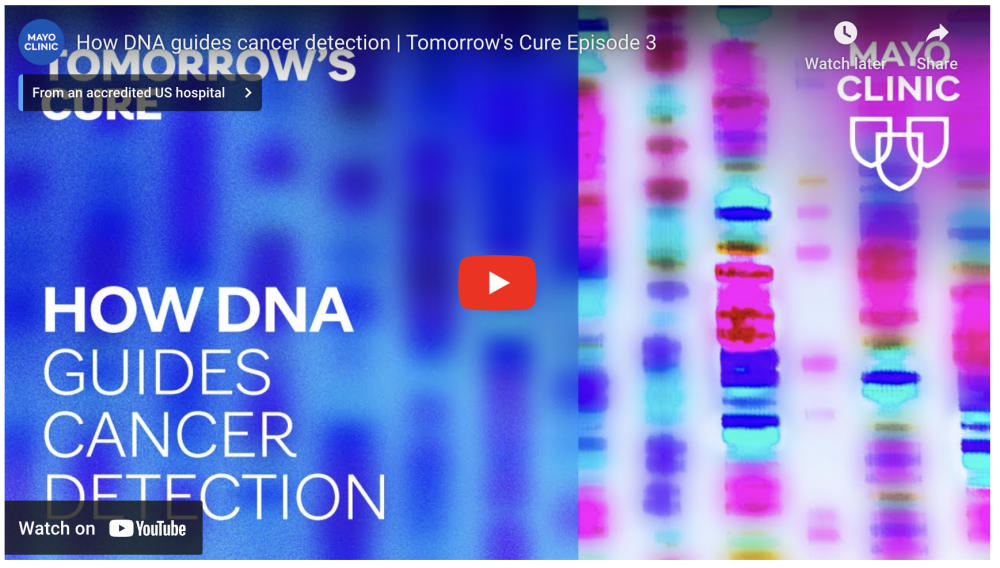This content is courtesy of Mayo Clinic, the No. 1 hospital in the world according to Newsweek. Minnesota Oncology is a member of the Mayo Clinic Care Network. This relationship provides us with access to information, knowledge and expertise from Mayo Clinic..
What if you knew you'd get sick before you ever felt symptoms? If it was a cold, that information is useful. In the case of cancer, it is lifesaving. This week's podcast episode of Tomorrow's Cure explores how DNA could be used to detect blood cancers before they ever develop.
Episode experts include Dr. Mrinal Patnaik, a hematologist, internist and oncologist at Mayo Clinic; and Dr. Kelly Bolton, an oncologist at Washington University in St. Louis.
"We're developing tests where we can actually detect the early first step in the multistep progression to cancer," Dr. Bolton says. "That's an area where we might be able to intervene on someone's genetic changes that haven't quite led to cancer, but that are very high risk of becoming a cancer."
"When we detect clonal hematopoiesis, we want to nip it in the bud and prevent those high-risk patients from developing blood cancer because they are often lethal, difficult to treat. So the earlier we can effectively and safely intervene, the better for the patients,” says Dr. Patnaik.





